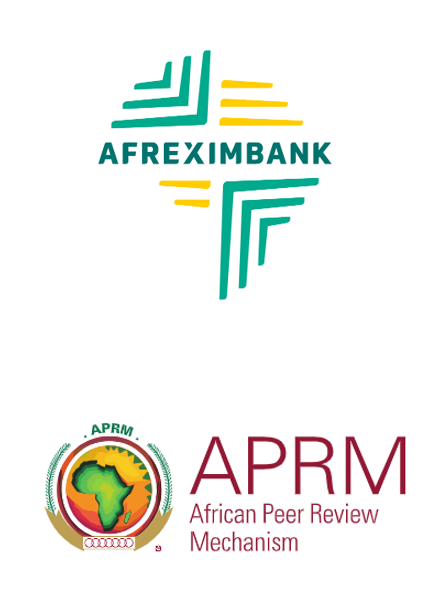
- Says Based On Flawed Loan Classification
The African Peer Review Mechanism (APRM) wants Fitch Ratings to re-examine its criteria and assumptions deployed in its June 4, 2025 downgrade of the African Export-Import Bank (Afreximbank).
Fitch Ratings in the report, lowered its long-term foreign currency issuer default rating of Afreximbank from ‘BBB’ to ‘BBB-’ with a negative outlook rating, justifying its decision by citing a perceived increase in credit risk and weak risk management policies.
It based this on its estimate that the bank’s non-performing loans (NPLs) stood at 7.1%, arising from a classification of exposures to the sovereign Governments of Ghana (2.4%), South Sudan (2.1%) and Zambia (0.2%).
The 7.1% figure is significantly higher than the 2.44% ratio reported by Afreximbank in its own disclosures.
APRM noted that in line with decision of the African Union Assembly of Heads of State and Government and Article 6(g) of its Statute (2020), it is mandated to provide support to African countries in the field of credit ratings, following which it routinely undertakes independent analyses of rating actions and commentaries issued by international credit rating agencies on African sovereigns and multilateral financial institutions.
It noted with concern and strongly contested these misclassification of Afreximbank’s sovereign exposures to the various African governments as NPLs, a classification APRM believes raises critical legal, institutional and analytical issues.
The assumption that Ghana, South Sudan and Zambia would default on their loans to Afreximbank, APRM continued, “is inconsistent with the 1993 Treaty establishing the bank to which Ghana and Zambia are both founding members, shareholders and signatories.
“The Multilateral Treaty signed in 1993 is legally binding on all member countries, imposing specific legal obligations related to the bank’s protection, immunities and financial operations.”
By virtue of this Treaty, APRM stressed, “loans extended by Afreximbank to its member countries are governed by a framework of intergovernmental cooperation and mutual commitment, rather than typical commercial risk principles. It is, therefore, legally incongruent to classify a loan to member countries as non-performing, especially when the borrower states are shareholders in the lender institution, no formal default has occurred and none of the sovereigns have repudiated the obligation.”
Fitch’s unilateral treatment of these sovereign exposures as comparable to market-based commercial loans, despite their backing by treaty obligations and shareholder equity stakes, it stressed, is flawed.
Doing so, the statement added, “reflects a misunderstanding of the governance architecture of African financial institutions and the nature of intra-African development finance.
“Fitch has misinterpreted the invitation extended by Ghana, South Sudan and Zambia to Afreximbank to discuss the loan repayments as signalling an intention to default and/or to lift the Preferred Creditor Status,” it noted further, urging Fitch Ratings to re-examine its criteria and assumptions in this case and to engage in technical consultations with Afreximbank and other relevant African stakeholders.
Objective, transparent and context-intelligent credit assessments, it continued, are critical to ensuring fair treatment of African institutions in the global financial system. The APRM reaffirms its commitment to promoting accuracy in the credit ratings.












